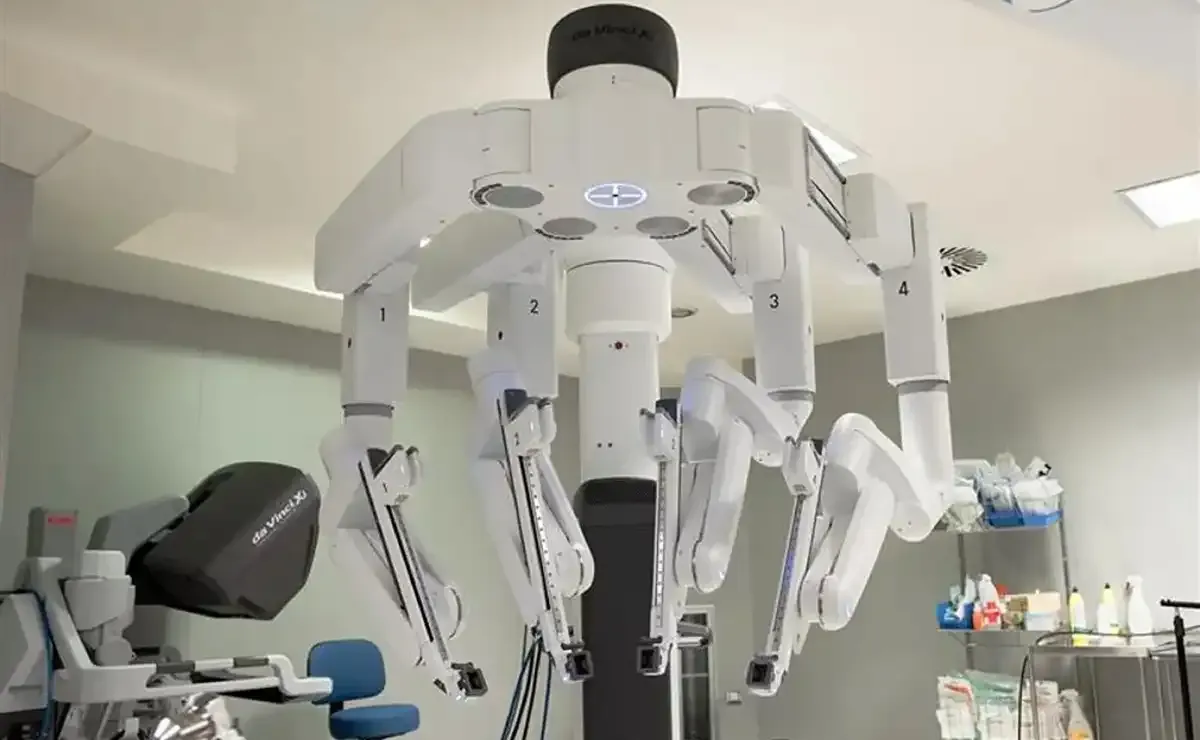ASISA
ASISA Vida launches a digital wellbeing platform
ASISA Vida policyholders will be able to access a range of content related to health and wellbeing - physical, emotional and financial.

This hospital has created a Robotic Surgery Unit with a multidisciplinary team of specialists accredited in the use of the most cutting-edge robotic technology, and will perform the first operations with the Da Vinci robot in the third quarter of this year.
HLA Vistahermosa Hospital has expanded its portfolio of services with the acquisition of the Da Vinci robotic platform, the first surgical robot to be installed in a private healthcare service in the city of Alicante. This tool, the most modern and advanced surgical robot available, will be fully operational in the third quarter of this year, when the first operations are scheduled.
In order to offer its patients the greatest possible access to this technology, HLA Vistahermosa has created a Robotic Surgery Unit made up initially of specialists accredited to use this technology. The unit has specialists in digestive system surgery, urology, gynaecology and thoracic surgery, coordinated by surgeons Dr. Ruiz de la Cuesta, Dr. Cándido Alcázar and Dr. Mariano Franco, together with urologist Dr. Carla Pérez. This multidisciplinary team will allow the hospital to offer access to robotic surgery techniques to a large number of patients with a range of conditions.
The Da Vinci robot is a minimally invasive technology that enables complex surgeries to be performed more safely, cancelling out the surgeon's hand tremors and providing an immersive 3D vision that enables high precision in the surgical technique, and leads to lower rates of postoperative complications, shorter hospital stays, better oncological results and greater quality of life for the patient.
The system is composed of three parts: a console located inside the operating theatre from which the surgeon remotely controls the robot's movements; the robotic platform with the robot “arms”, which is placed next to the patient's bed; and a vision tower which is required to create and process the anatomical images. The robot in no way replaces the role of the surgeon but rather facilitates his or her work and enables them to proceed with great precision.
Patients who undergo surgery with the Da Vinci system are the primary beneficiaries from the use of this technology, since robotic surgery reduces incisions and intraoperative bleeding, so transfusions are less frequent; it also reduces pain in the postoperative phase and the risk of infection. Post-surgical intensive care unit and total hospital stay length is reduced by up to 40% compared to conventional surgery, allowing patients to get back to their daily lives much faster.
Surgery with the Da Vinci platform not only reduces postoperative complications. This platform is the only one with a proven advantage in the quality of life of patients who have undergone prostate surgery, reducing the rate of impotence and incontinence, and improving oncological results in patients undergoing surgery to treat digestive tumours.
The very high precision of the movements that the surgeon transmits to the robot translates into a significant reduction in the complications and sequelae that any surgery can cause, and the improved vision it offers encourages more radical oncological surgeries.
Robotic surgery can be used in a number of specialties, including urology, gynaecology, general and digestive surgery, oncological surgery, thoracic surgery and paediatric surgery.
The Da Vinci robot will significantly expand the surgical capacity of the HLA Vistahermosa Hospital, which can now perform the most complex surgeries with a technology that guarantees greater precision and safety, and places the HLA Group at the forefront of Spanish surgery. The Group already has three Da Vinci robots installed at HLA Moncloa University Hospital (Madrid), HLA El Ángel University Hospital (Málaga) and HLA Vistahermosa.
The experience built up since 2017, when the first Da Vinci was installed at HLA Moncloa University Hospital, currently the private centre that performs the most operations in Spain with this technology, has provided the HLA Group with teams with a long track record in robotic surgery, examples of good practice and an internal model of ongoing training. This experience, together with the networking that the Group fosters among its centres, will make the implementation of the Da Vinci at HLA Vistahermosa much more agile and efficient so that patients will have access to its advantages within the next few months.